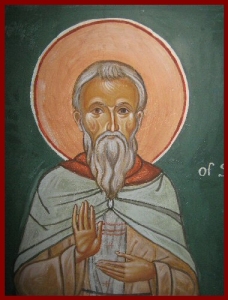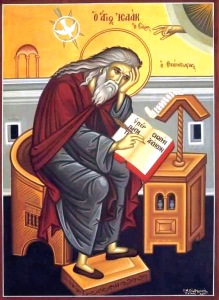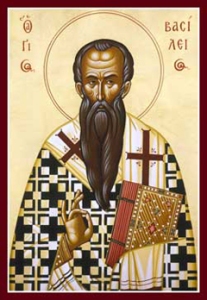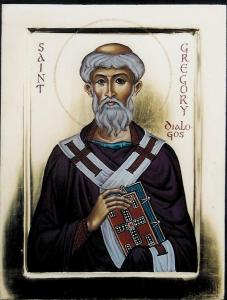 The energy of the Holy Spirit, which we have already mystically received in baptism, is realized in two ways.
The energy of the Holy Spirit, which we have already mystically received in baptism, is realized in two ways.
First – to generalize – this gift is revealed, as St Mark tells us, through arduous and protracted practice of the commandments: to the degree to which we effectively practice the commandments its radiance is increasingly manifested in us.
Secondly, it is manifested to those under spiritual guidance through the continuous invocation of the Lord Jesus, repeated with conscious awareness, that is, through mindfulness of God.
In the first way, it is revealed more slowly, in the second more rapidly, if one diligently and persistently learns how to dig the ground and locate the gold.
Thus if we want to realize and know the truth and not to be led astray, let us seek to possess only the heart-engrafted energy in a way that is totally without shape or form, not trying to contemplate in our imagination what we take to be the figure or similitude of things holy or to see any colors or lights. For in the nature of things the spirit of delusion deceives the intellect through such spurious fantasies, especially at the early stages, in those who are still inexperienced.
On the contrary, let our aim be to make the energy of prayer alone active in our hearts, for it brings warmth and joy to the intellect, and sets the heart alight with an ineffable love for God and man. It is on account of this that humility and contrition flow richly from prayer.
For prayer in beginners is the unceasing noetic** activity of the Holy Spirit. To start with it rises like a fire of joy from the heart; in the end it is like light made fragrant by divine energy.
There are several signs that the energy of the Holy Spirit is beginning to be active in those who genuinely aspire for this to happen and are not just putting God to the test – for, according to the Wisdom of Solomon, it is found by those who do not put it to the test, and manifests itself to those who do not distrust it (cf. Wisd. 1:2).
In some it appears as awe arising in the heart, in others as a tremulous sense of jubilation, in others as joy, in others as joy mingled with awe, or as tremulousness mingled with joy, and sometimes it manifests itself as tears and awe. For the soul is joyous at God’s visitation and mercy, but at the same time is in awe and trepidation at His presence because it is guilty of so many sins.
Gregory of Sinai (1260s–1346): On the Signs of Grace and Delusion 3-4, Text from G.E.H. Palmer, Philip Sherrard, and Kallistos Ware (trans. and eds.) The Philokalia: The Complete Text, vol. 4 (Faber & Faber, London & Boston: 1979ff), pp. 259-260.
** noetic = relating to the nous. The translators of the Philokalia say the following about the word nous: as used in this passage from Gregory and by other Greek authors: INTELLECT (nous): the highest faculty in man, through which – provided it is purified – he knows God or the inner essences or principles of created things by means of direct apprehension or spiritual perception. Unlike the dianoia or reason, from which it must be carefully distinguished, the intellect does not function by formulating abstract concepts and then arguing on this basis to a conclusion reached through deductive reasoning, but it understands divine truth by means of immediate experience, intuition or ‘simple cognition’ (the term used by St Isaac the Syrian). The intellect dwells in the ‘depths of the soul’; it constitutes the innermost aspect of the heart (St Diadochos). The intellect is the organ of contemplation, the ‘eye of the heart’ (Macarian Homilies).
 Lord, I have cried to you, hear me.
Lord, I have cried to you, hear me. Prayer is a joy that gives place to thanksgivings.
Prayer is a joy that gives place to thanksgivings.











